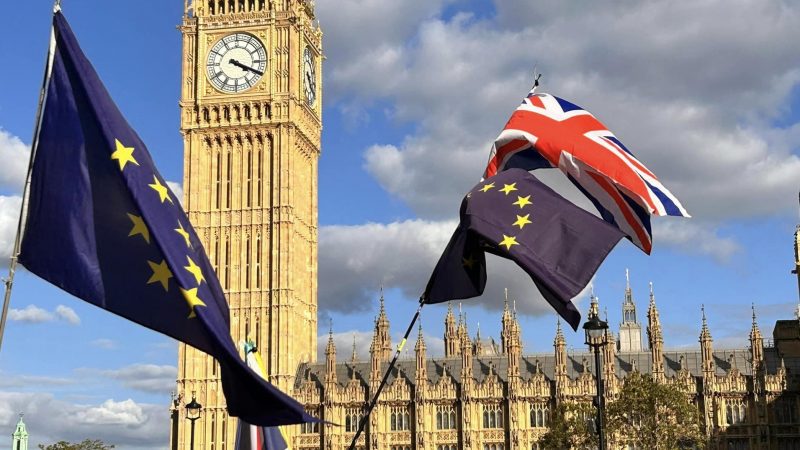‘The negative impacts of the Trade and Cooperation Agreement have intensified over time, with 2023 showing more pronounced trade declines than previous years.’

Red tape caused by Brexit has led to the trade of goods between the UK and the EU to slump, and the situation is worsening, is the finding of a new report by economists at Aston University Business School in Birmingham.
The study, published September 16, says that the Trade and Cooperation Agreement (TCA) signed by Westminster and Brussels has “profound and ongoing stifling effects” on the economy. The research shows that between 2021 and 2023, many smaller producers in Britain abandoned exporting small amounts to Europe after new rules and regulations were put in place after the UK departed from the EU. Among the worst-hit industries are clothing makers, farmers, and paper and wood manufacturers.
During that period, UK exports to the EU decreased by 27 percent and imported goods fell by 32 percent, compared to what the economists estimate would have occurred without Brexit. The biggest drop in export value was for fruit and nuts, which fell by 73.5 percent.
Additionally, the diversity of trade goods has fallen, with 1,645 fewer types of British products being transported to the EU. According to the report, the drop in the number of products being exported is because of producers giving up due to additional red tape.
Trade with smaller countries within the EU that are further away has been impacted the most, with closer and larger nations being the least affected.
In the report, the Birmingham-based economists said: “The study highlights that the negative impacts of the TCA have intensified over time, with 2023 showing more pronounced trade declines than previous years. This suggests that the transition in UK-EU trade relations post-Brexit is not merely a short-term disruption but reflects deeper structural changes likely to persist.”
The report’s authors are urging the UK government to seek ways to stabilise and enhance the country’s economy. It suggests opening sector-specific negotiations with the EU to try and mitigate the effects on the industries worst affected by Brexit and the TCA and using new technology to streamline customs procedures. Additionally, it recommends that the UK reconfigure its supply chains to enhance resilience and competitiveness.
Despite such warnings, Keir Starmer has ruled out any considerable changes, such as rejoining the EU’s single market and customs union but has pledged to reduce post-Brexit red tape and “reset” relations with the UK’s European partners, which were left in tatters by the previous Conservative government.
In response to the economists’ report, a government spokesperson told the BBC that it will work to “improve our trade and investment relationship with the EU and tear down unnecessary trade barriers, while recognising that there will be no return to the single market, customs union or freedom of movement.”
Left Foot Forward doesn't have the backing of big business or billionaires. We rely on the kind and generous support of ordinary people like you.
You can support hard-hitting journalism that holds the right to account, provides a forum for debate among progressives, and covers the stories the rest of the media ignore. Donate today.



